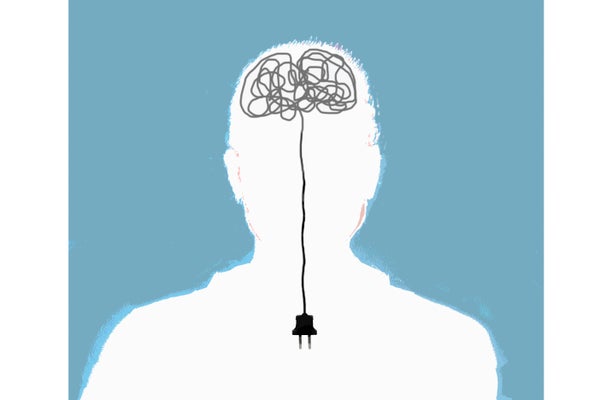This article was published in Scientific American’s former blog network and reflects the views of the author, not necessarily those of Scientific American
Growing up, I lived in an area where we lost power from storms at least a few times per year. Most of the time the whole thing lasted maybe a few hours. We would find some candles, use matches to light the stove, or even grill by flashlight. If it lasted into the evening, we would light the Coleman lantern and play a board game. We would set the old egg timer before heading to bed. In the morning, we would reset the clocks and head to school. Inconvenient, sure, but only a major disruption on the few occasions that lasted more than a day.
This week the rains in NY made us lose power, and we started out about the same. We lit the stove with matches, grabbed whatever would spoil first out of the fridge, and ate by candle light. But then my husband and I realized that our phones were on their last bars and – like many people today – did not have backup option of a landline. Our phones were our access to people, information, and even our morning alarms. We couldn’t even listen to music, because we didn’t have a battery-powered radio (we usually listen to music online). Our neighborhood was a sea of cars and trash cans out from the night before, abandoned by automatic garage door openers. Not really a problem, but a visual reminder of how much more today’s houses depend on electricity than the one I grew up in.
Thankfully the power came back on before the end of the night and we joined the rest of the neighborhood in scrambling to plug in our devices. But even as the power came on, the internet did not. Within half an hour my neighbor texted to check if our internet was also down. People started using their data plans to post on the neighborhood Facebook page to see if the internet outage was affecting anyone else. Neighbors were checking to see who all had called the internet service provider to report the outage, hoping to get our area moved up on the list. Only the presence of a very large fox had ever inspired that level of activity on a social media page usually limited to garage sales and recommendations for pediatric dentists.
On supporting science journalism
If you're enjoying this article, consider supporting our award-winning journalism by subscribing. By purchasing a subscription you are helping to ensure the future of impactful stories about the discoveries and ideas shaping our world today.
The next morning – power still on, but internet still down – the remote working crowd suddenly had decisions to make. Find a coffee shop a few towns over and camp out? Use a sick day? Find flash drives and physically deliver files? Conference calls through web platforms were being rescheduled via emails that not everyone would receive. With the continued increase of remote work in the US, some estimates reaching almost half, the loss of internet for even short portions of the work day can lead to professional complications. Those (like me) unable to piggy-back off large, personal data plans had to head out in search of places with enough Wi-Fi and privacy to conduct their business. Being forced to unplug had clearly sent people scrambling.
But, much like the nights of board games by lantern from my childhood, there have also been situations where unexpected outages led to good things professionally. A few years ago, the building that housed our office lost internet for a full day. Managers were considering sending people home, but someone remembered an internal database that was in shambles. With many thousands of entries that needed to be organized and updated, the database had been languishing for more than a year. Everyone felt that it was just too many man-hours for anyone or any group to take on. The list was broken down and split across the whole department. Within five hours every entry had been cleaned. The updated database was such a relief that coworkers joked about shutting down the internet once per month to help us clear out all of our internal backlogs.
Unexpected interruptions, those large enough to be inconvenient but not serious enough to pose significant risk, can be a useful opportunity to reassess. I am reminded of a little over a decade ago when I had a cell phone - among other things - stolen while I was in another country. I was able to get an international calling card and start burning through my money to reach someone back in the states. As I stood at the phone, I realized that I only knew three people’s numbers by heart, numbers that had been the same since my early childhood. Even though those were not the people I would have chosen to turn to, they were the numbers I had to loop through until someone picked up. For years afterward, I insisted on calling the main numbers in my life by manually dialing them, so that I would have some kind of backup plan. Just like in the case of lost power or internet, interruptions can provide perspective on just how many places technology has become a crutch rather than a support, and it can expose the places in need of a backup plan.
